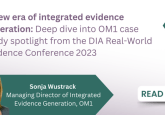Stakeholders call for updated methodologies for ATMPs to ensure fit-for-purpose JCA system

Over 30 organizations call for the EU Joint Clinical Assessment to modernize methodologies for evaluating ATMPs by considering all types of available evidence.
A coalition of more than 30 not-for-profit organizations, including patient groups, scientific societies, research foundations, and medical institutes, has issued a call-to-action regarding the implementation of the new EU Joint Clinical Assessment (JCA). The stakeholders warn that without due consideration of broader clinical evidence, including that from single-arm trials and real-world evidence (RWE), JCA could impede patient access to transformative therapies, particularly advanced therapy medicinal products (ATMPs).
The new EU JCA intends to streamline the evaluation process of new therapies across member states. However, the group has warned the process risks becoming a hurdle for patient access if the Health Technology Assessment (HTA) Coordination Group does not modernize its approach. The call to action urges the EU HTA Coordination Group, its relevant subgroups and JCA assessors to modernize their approach to evaluating ATMPs, which include cell and gene therapies. As Juan Ventura, Research & Patient Engagement Director at Cancer Patients Europe, notes,
“While a promising JCA would give faster access to medicines and reduce inequality of access across Europe for cancer patients, the current JCA methodologies for assessing clinical benefit to patients do not take into account the unique nature of ATMPs.”
The stakeholders emphasize that randomized controlled trials (RCTs) are often unfeasible and unethical for ATMPs targeting rare or ultra-rare diseases. Small population sizes, limited treatment windows and the lack of standard of care are amongst several factors they cite making RCTs of limited value. They call on the EU HTA Coordination Group to:
- Revise the JCA methodological guidance to avoid discrediting evidence from single-arm trials
- Adopt a more pragmatic approach to JCAs of ATMPs by using real-world data (RWD) to fill evidence gaps
Paolo Morgese, VP, Public Affairs Europe at the Alliance for Regenerative Medicine (ARM), added, “Failing to recognize the value of single-arm trials and of RWE when RCTs are not feasible introduces a new barrier for ATMPs and risks dramatically delaying patient access to transformative therapies. This opportunity to modernize the EU’s approach to assessing innovative medicines cannot be missed.”
The call-to-action highlights that the European Medicines Agency (EMA) has already granted marketing authorization for some ATMPs based on single-arm trial data. Stefano Benvenuti, Head of Public Affairs at Fondazione Telethon, argued, “If EMA can grant marketing authorization for some ATMPs on the basis of clinical efficacy based on single-arm trials data surely the JCA can accept single-arm trials with indirect comparisons, on the basis of very robust observational studies or registries.”
The signatories, including SMA Europe, the International Society for Cell & Gene Therapy (ISCT) and European Multiple Sclerosis Platform (EMPS), stress that scientifically rigorous methodologies exist to accommodate the type of clinical evidence generated for ATMPs. They emphasize that RWD from well-designed patient registries and observational studies can provide context and comparison for single-arm trials.
The call to action, agreed upon following a workshop hosted by Cancer Patients Europe, the ARM, and Fondazione Telethon, states,
“With the world of medicine evolving very quickly, marked by innovative therapies such as ATMPs bringing promise to patients with the highest unmet needs, it is crucial that HTA methodologies evolve to embrace this scientific progress.”
Want regular updates on the latest real-world evidence news straight to your inbox? Become a member on The Evidence Base® today>>>






